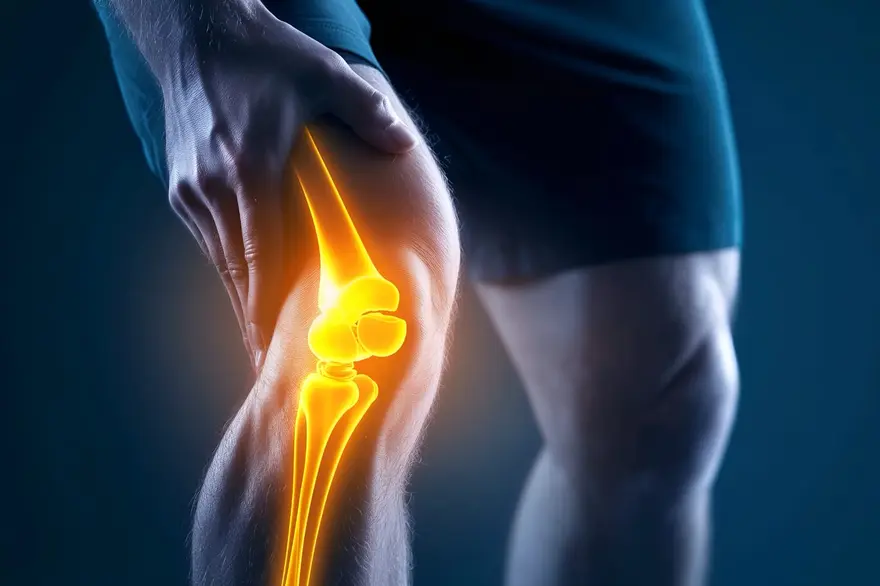NIPT Test (Noninvasive Prenatal Testing)
58+ booked in last 3 daysNon-Invasive Prenatal Screening (NIPT)Test Overview
NIPT is a method used to determine the risk for the foetus being born with certain chromosomal abnormalities, such as Trisomy 21 (Down syndrome), Trisomy 18 (Edwards syndrome) and Trisomy 13 (Patau syndrome). NIPT is the most accurate prenatal genetic screening test currently available.
NIPT is regarded as noninvasive since only the pregnant mother must have her blood drawn and the foetus is not at risk. Small DNA fragments that are floating about in a pregnant woman's blood are examined by NIPT test. These fragments are known as cell-free DNA (cfDNA) because they are free-floating and not contained within cells, in contrast to most DNA, which is found inside the nucleus of a cell. When cells break down and die, their contents, including DNA, are released into the bloodstream as minute fragments with an average size of fewer than 200 DNA base pairs.
The mother's bloodstream during pregnancy contains a mixture of cfDNA from her cells and cells from the placenta. The tissue in the uterus known as the placenta connects the mother's blood supply with the developing foetus. Throughout the pregnancy, these cells are released into the mother's blood. Typically, the DNA of the placenta and the foetus are similar. Without endangering the foetus, cfDNA analysis from the placenta offers a chance for early diagnosis of some genetic disorders.
Written by: Supriya Kulkarni, Lead-Content & Training
NIPT Test (Noninvasive Prenatal Testing) Price
Metropolis Healthcare is a leading diagnostics centre and pathology lab in India equipped with the latest state-of-the-art technologies that provides the NIPT Test (Noninvasive Prenatal Testing) with a clear pricing structure.
The NIPT Test (Noninvasive Prenatal Testing) Price in Dahisar is ₹ 16,200 .
We are committed to deliver accurate and quality results from the best labs in India with complete transparency regarding test cost and turnaround time. No matter where you are, we strive to offer patients high-quality service that is affordable and accessible.
Frequently Asked Questions
- The test is intended for use in pregnant women between 10-17 weeks of pregnancy and who are at high risk for the chromosomal aneuploidies.
- NIPT is recommended for pregnant women to screen for chromosomal diseases that are brought on by an extra or missing copy of a chromosome (aneuploidy).
- NIPT is used to determine the risk for the foetus being born with certain genetic abnormalities such as:
- Down syndrome (trisomy 21, caused by an extra chromosome 21)
- Edwards syndrome (trisomy 18, caused by an extra chromosome 18)
- Patau syndrome (trisomy 13, caused by an extra chromosome 13)
- Extra or missing copies of the X chromosome and Y chromosome, the sex chromosomes)
- Aneuploidies (missing (deleted) or copied (duplicated) sections of a chromosome)
- NIPT is recommended for all types of pregnancies.
- NIPT is offered to all women after at least 10 weeks of pregnancy.
- NIPT is recommended as the first line of screening for all pregnancies, irrespective of the risk.
- NIPT is especially significant if the woman is above 30 years of age.
Patient Preparation: 12-14 hrs fasting required. NIPT is recommended at gestational age between 10 and 17 weeks. Sample collection is required to be done in special tube (streck tube) & by prior appointment. The patient is required to fill test requisition form (TRF) which include Clinician Stamp, Ultrasound Report (USG), Dual and Quadruple Marker Report, and Photo Identification Proof.
NIPT test measures foetal cell-free DNA (cfDNA) in the mother’s bloodstream to be able to identify foetal chromosomal or genetic abnormalities.
NIPT test requires a blood sample. A tourniquet (elastic) band is placed tightly on the upper arm. The patient is then asked to make a fist. This helps in the build-up of blood filling the veins. The skin is disinfected before needle insertion and the blood sample is collected in vacutainer.
NIPT test is performed on ION Genestudio S5 Plus NGS platform and involves isolation of cell free fetal DNA from maternal blood, generation of genomic DNA library, high throughput sequencing of extracted cell free fetal DNA and calculation of molecular mass of fetal DNA in chromosomes. Chromosomal aneuploidies can then be detected using bioinformatics analyses (Sage 12plex analytic program version v.1) where the detection rate and sensitivity are over 99%.
A "low risk" result indicates that there is often very little probability that the baby will have trisomy 21, trisomy 18, or trisomy 13. A trisomy 21, trisomy 18, or trisomy 13 result that is marked as "high risk" indicates that the infant is likely to have one of these chromosomal errors. If your NIPT result is "high risk," you should consulkt a genetic counsellor who can explain your results, offer assistance, go over your options, and set up additional testing as necessary.
To be able to detect foetal chromosome abnormalities, there must be sufficient foetal cfDNA in the mother's bloodstream. The foetal fraction is the percentage of cfDNA in maternal blood that originates from the placenta. The foetal percentage must normally be greater than 4%, which happens during the ninth week of pregnancy. Low foetal fractions may prevent the test from being run or result in a false negative. Low foetal fractions can be caused by foetal abnormalities, sampling mistakes, maternal obesity, and testing too early in the pregnancy.
- D0039 Maternal Screen-1st Trimester Dual Marker Test
- D0041 Maternal Screen-2nd Trimester Triple Marker Test
- D0040 Maternal Screen-2nd Trimester Quadruple Marker Test
Ratings & Reviews (0)
Why Metropolis?
Metropolis has a team of 200 senior pathologists and over 2000 technicians delivering diagnostic solutions in the areas of routine, semi specialty and super specialty domains like Oncology, Neurology, Gynaecology, Nephrology and many more.
We offer a comprehensive range of 4000+ clinical laboratory tests and profiles, which are used for prediction, early detection, diagnostic screening, confirmation and/or monitoring of the disease.
 Home Visit
Home Visit Upload
Upload




.png)

















 WhatsApp
WhatsApp